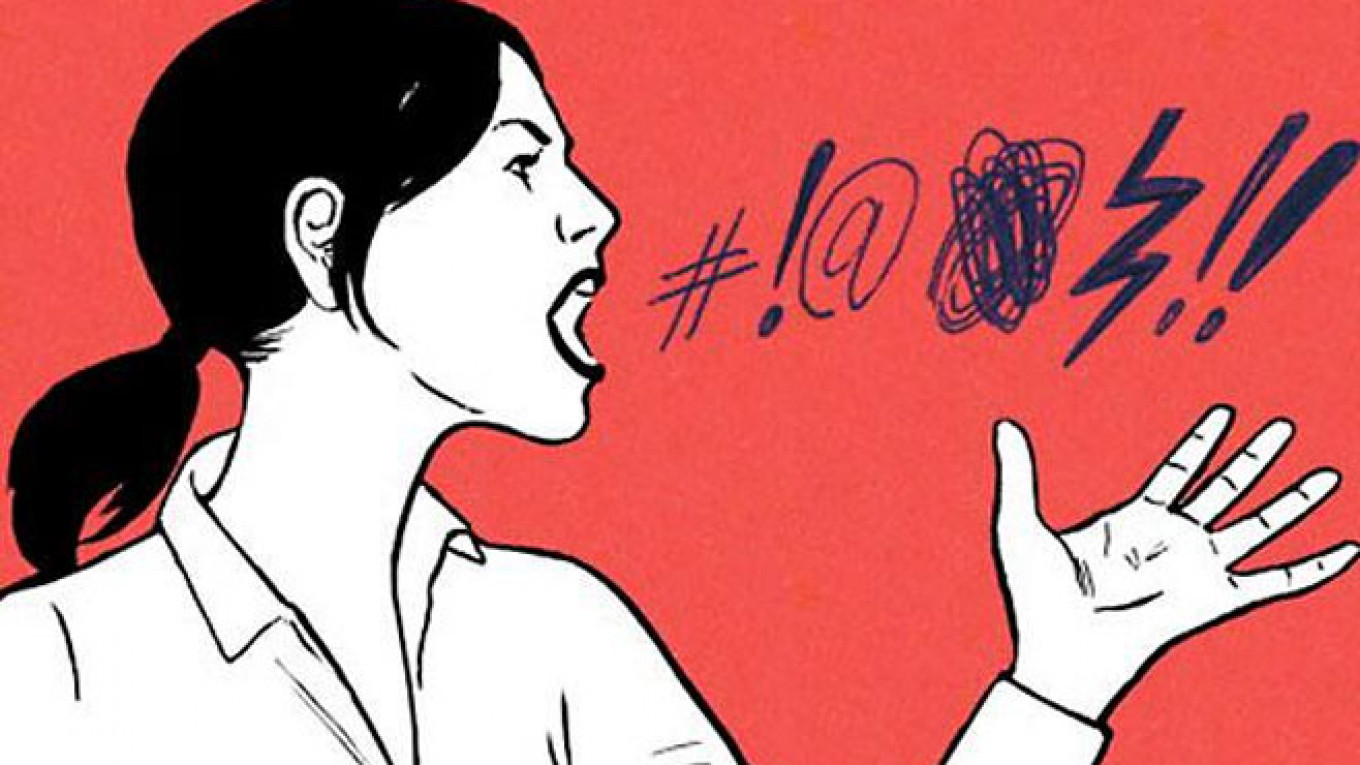Ё моё!: Holy Moley!
Russian, like all other languages, has its share of obscenities and naughty expressions. And Russian, also like all other languages, has dozens of euphemisms so that you can let loose with a whopper without getting whopped over the head for it. These euphemisms are words, phrases, and even sounds that are similar to the Very Bad Words.
As anyone who has studied Russian or lived in Russia for more than 10 minutes knows, the very worst of the Very Bad Words is a phrase that casts aspersions on the honor of someone's mother. The phrase begins with the letter "ё" and consists of four syllables.
Most of the stand-ins for these Very Bad Words start with "ё," "е" or "я." The first group of them is really just a bunch of nonsense syllables, starting with one of my personal favorites, ёпст: laconic but extremely satisfying to spit out. Even more laconic is the simple, but elegant "ё," often stretched out slowly as a sign of amazement or horror — like when you walk into your apartment after it's been burgled. If that doesn't provide the emotional release you're looking for, you can try ё моё, ой-ё, ё-ка-лэ-мэ-нэ, or ё-пэ-рэ-сэ-тэ.
If you don't like sounding as if you were singing a Hawaiian jingle, you can try using a phrase from another batch of euphemisms. I think that because human beings like the sounds they produce to signify something, Russians have made up a whole list of people, things and creatures that sound like they might be real but are really just euphemisms for the Very Bad Words.
One of them is very common: ёлки-палки (something like "fiddlesticks"). This is a good little phrase, especially when you sit on the first syllable for a long time. (A prolonged ёёёёёёёё is a very clear marker of dismay or amazement.) However, do not use this expression when you are discussing possible anniversary dinner venues with your significant other. You may end up with a salad bar on your head.
What's funny about these made-up phrases is that they sound so convincing that people have assigned meaning to them. For example, ёшкин кот, it turns out, is Felis joskini, a nasty tomcat that is indigenous to the Russian Federation. And ёкарный бабай, aka ёханый бабай, ёханный бабай, or жёванный бабай is, depending on the source, a boogieman that comes at night, a man who has lost his virility — from the Turkish йок (no, there is none) — or a washed up old codger.
There is another batch that begins with some form of ядрёный, which is an actual word — an adjective that means hearty, strong, or sharp, as in ядрёный мороз (a sharp frost). This has produced the euphemisms ядрёна вошь, ядрёна Матрёна, ядрёный корень, or ядрён батон. Of course, they do sort of sound like a nippy louse, lusty Molly, a spicy root, or a hearty loaf. But forget all that. Just shout them out when you're mad.
And finally, there is an odd set of euphemisms from the Far East: япона мама (Japanese Mom or chain of sushi bars), японский бог (Japanese god) and японский городовой (Japanese beat cop).
My personal favorite is a euphemism of another Very Bad Word, the one that begins with the letter "б." It's the utterly despicable бляха-муха, which I define as a filthy, scheming, lousy, annoying gnat.
Or, alternatively, it could be defined as *&!#@@&!^$*!&^@*$#&^$*&#^&*^!!!!!
Michele A. Berdy, a Moscow-based translator and interpreter, is author of "The Russian Word's Worth" (Glas), a collection of her columns.
A Message from The Moscow Times:
Dear readers,
We are facing unprecedented challenges. Russia's Prosecutor General's Office has designated The Moscow Times as an "undesirable" organization, criminalizing our work and putting our staff at risk of prosecution. This follows our earlier unjust labeling as a "foreign agent."
These actions are direct attempts to silence independent journalism in Russia. The authorities claim our work "discredits the decisions of the Russian leadership." We see things differently: we strive to provide accurate, unbiased reporting on Russia.
We, the journalists of The Moscow Times, refuse to be silenced. But to continue our work, we need your help.
Your support, no matter how small, makes a world of difference. If you can, please support us monthly starting from just $2. It's quick to set up, and every contribution makes a significant impact.
By supporting The Moscow Times, you're defending open, independent journalism in the face of repression. Thank you for standing with us.
Remind me later.








